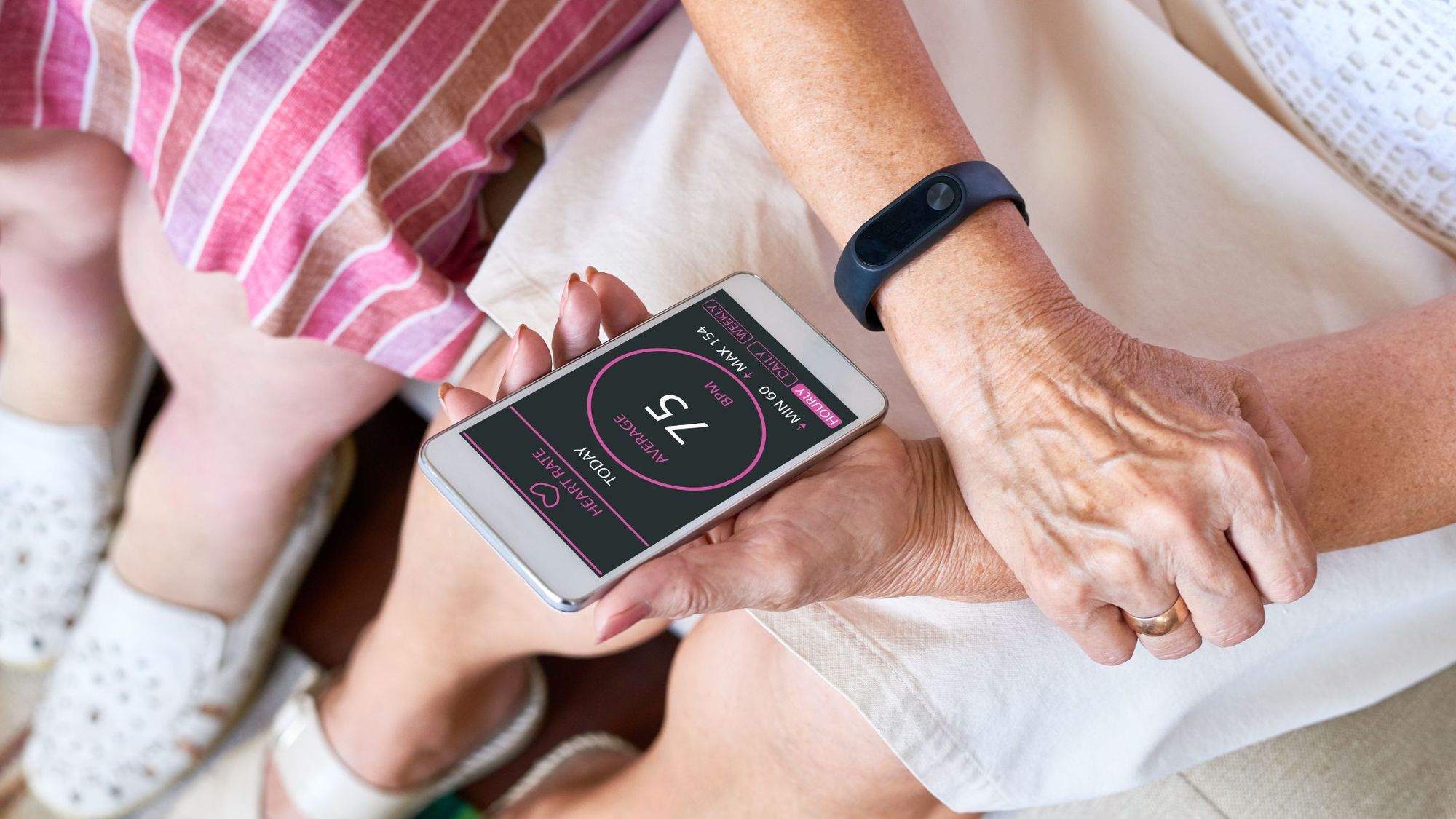Fitness tracker accuracy is important, especially when we’re all trying hard to get in shape and improve our physical wellness. There’s no shame in needing some assistance when getting fit and trying to lose weight, and fitness trackers are often the perfect companions and digital motivators. However, we also need to know if they’re going to be accurate at recording our fitness journey.
Interestingly, fitness trackers are more accurate than you might think. Nothing is ever going to be perfect, but this technology comes close in terms of measuring your overall progress. Of course, it’s going to vary according to what you want to measure, but you can rest assured that you’re getting a pretty accurate analysis of how you’re doing. Let’s take a closer look at fitness tracker accuracy, and some of the different fitness trackers out there.

Why is Fitness Tracker Accuracy Able to Work?
Surprisingly, fitness tracker accuracy is quite good. The only thing you can truly discredit is the sleep tracker. Generally speaking, your fitness tracker will overestimate your total hours slept while underestimating the number of times you woke up in the night. Furthermore, the tech that tracks sleep quality and efficiency is severely underdeveloped and not at reliable levels yet.
With that out of the way, the rest of your tracker capabilities are excellent. The actual movement, physical activity and fitness aspect of fitness tracker accuracy is great.
The accuracy can definitely vary according to where the tracker is worn as well. For example, having your phone in your pocket does tend to offer greater accuracy than wearing a tracker on your non-dominant wrist. Similarly, having the tracker attached to your waistband is more accurate than your wrist.
However, for a clearer look at the overall accuracy of fitness trackers, it’s best we look at the three main forms of tracking in a little more detail. Considering the future of exercise is becoming more virtual and digitized every day, a fitness tracker could be a great investment and a handy digital tool to start using.

Measuring Your Heart Rate
If you’re wondering how fitness tracker accuracy can possibly work with regard to heart rate, it’s actually fairly interesting. When the tracker is worn on your wrist, it uses LED lights that send waves of light into your skin. Once this bounces back, the tech within the tracker takes the information from those light waves and transforms it into information – your heart rate.
Studies have shown that the accuracy of fitness trackers with regard to heart rate is excellent. Generally speaking, the results are reliable and should give you a clear indication of your exercise intensity. Of course, the numbers can vary between devices, and there is always a risk of error, but the overall consensus is that you can rely on them for tracking your workouts.
Counting Your Steps
Fitness tracker accuracy with regard to step counts can be a little trickier. Overall, you can expect to find that it is able to keep good track of your steps for the day using your fitness device, but you should also be aware that you could be as many as 20 steps over or under your actual total at any time – especially if you are walking slowly or intermittently.
Studies have found that while the overall accuracy is good, fitness tracker accuracy for steps is best when you are engaged in brisk walking and more intense activities. If you walk at a slower pace, these same studies have found that the accuracy does drop a little. Similarly, wearing the tracker on your wrist is a little less accurate than having your phone in your pocket or a waist tracker.
Your smartphone likely has a ‘movement ring’ that closes when you’ve completed a certain number of steps. This is usually set at something like 10,000 steps per day. If your phone is in your pocket when you’re walking, running, or hiking, the fitness tracker accuracy will be quite good. And, it’s almost just as good if you’re using a wrist tracker such as an Apple Watch.
Measuring Calories Burned
When it comes to measuring calories burned, this is where fitness tracker accuracy can be a little disappointing. It doesn’t help that different brands often have different tracking methods for the amount of energy we burn, and this is further exacerbated by the fact that variations in heart rate, movement, and physical activity can cause inaccurate spikes that lead to poor estimates for the calories burned.
Overall, studies have found that fitness tracker accuracy is often mistaken by at least 10% when counting the number of calories burned, and this can be an overestimation or an underestimation. Furthermore, the type of workout can also impact how severely the energy burned has been miscalculated, with activities like anaerobic exercise often deeply underestimated. Furthermore, sometimes exercise such as walking up a long flight of stairs is counted as a regular walk and regular steps, which would cause an underestimation of calories burned.
The Accuracy of the Apple Watch
The good news is that the Apple Watch remains an excellent fitness tracker that is actually fairly reliable in terms of heart rate, step counting, and the number of calories burned. These smart watches can help you to compare the consistency of your exercise routines, showing you the areas you have been improving on and where you can continue to boost your own fitness.
Furthermore, Apple Watches tend to be very motivating in terms of encouraging you to close your move ring for the day, or congratulating you when you record and complete an outdoor workout.
Of course, having your iPhone in your pocket tends to be a little more accurate for recording steps than wearing a device on your wrist (your wrist picks up additional movement), but if you leave your phone at home, and you exercise without your phone in your pocket, then it’s handy if you have an Apple Watch on, as your exercise simply transfers over to your watch – meaning you can always keep track of your workouts.
The main downside to the Apple Watch? The battery life. You have to charge it every single day to keep it functional, which means the battery life is lacking compared to other fitness trackers. Other than that, it’s packed with fantastic features.
The Accuracy of Fitbit Trackers
The Fitbit is often referred to as the King of fitness trackers, and they tend to be exceptionally detailed in the information they require from you to keep readings as accurate as possible. There are always going to be dips and flaws in the calculations, but it remains one of the most accurate fitness trackers on the market – which means it’s worth the investment.
The main issue you are likely to encounter is that the Fitbit is likely to overestimate the number of calories you burn if you engage in intense activity and exercise frequently. Those with a consistently high heart rate have an increased chance of being told they are burning more calories than they actually are, and this is why it is important to take it as an estimation.
The Accuracy of the Google Pixel
This is certainly considered to be a newer addition to the fitness tracker family, but it has made an impressive impact so far. The step counter is surprisingly accurate and it also tracks GPS location to show you a detailed overview of your activity – another accurate feature. Overall, it is easily on par with the Apple Watch in terms of reliability.
This tracker has full integration with Fitbit as well, giving you access to a massive range of features that you wouldn’t otherwise be able to see. The main downside is that the battery life is very short, and many of the Fitbit metrics are locked behind a paywall where you need to pay for Fitbit premium. Otherwise, it remains an affordable alternative to the Apple Watch.
Fitness Tracker Accuracy: To Conclude
Fitness tracker accuracy is great for most devices, and it remains surprisingly good tech if you want to keep track of your fitness journey, stay motivated, be held accountable, and mark your progress. While it might not be 100% reliable just yet (especially in terms of calories burned), this particular technology is constantly evolving and continues to improve in all areas. Hopefully, that means we’ll see more accurate sleep recordings soon as well, since most fitness trackers also track our sleep.
If you’re interested in getting insights into your fitness and your sleep, getting an at-home DNA test from CircleDNA could provide you with an added advantage. The results of the DNA test are quite extensive, giving you a detailed insight into your genetic sleep traits, your genetic strengths and weaknesses when it comes to physical fitness abilities, the optimal diet for you based on your DNA, and more. With these DNA insights about yourself, you’ll get a clearer idea of the fitness and wellness routines that work best for your genetic body composition. With insights like these, you’ll have the knowledge needed to put your best foot forward on your fitness journey.
References:
Chow HW, Yang CC. Accuracy of Optical Heart Rate Sensing Technology in Wearable Fitness Trackers for Young and Older Adults: Validation and Comparison Study. JMIR mHealth and uHealth. 2020;8(4):e14707. doi:https://doi.org/10.2196/14707
Hartung V, Sarshar M, Karle V, et al. Validity of Consumer Activity Monitors and an Algorithm Using Smartphone Data for Measuring Steps during Different Activity Types. International Journal of Environmental Research and Public Health. 2020;17(24):9314. doi:https://doi.org/10.3390/ijerph17249314Passler S, Bohrer J, Blöchinger L, Senner V. Validity of Wrist-Worn Activity Trackers for Estimating VO2max and Energy Expenditure. International Journal of Environmental Research and Public Health. 2019;16(17):3037. doi:https://doi.org/10.3390/ijerph16173037






